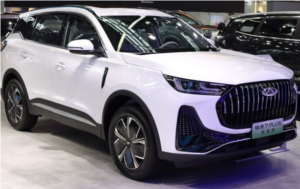
According to Serbian Economist, Chinese automaker Chery is discussing with the Serbian government the possibility of opening a production plant in Serbia. In Shanghai, Serbian Deputy Prime Minister and Economy Minister Adriana Mesarovic held talks with Chery Chairman Yin Tongyue, the parties discussed the conditions of potential localization and further steps, Serbian publication Telegraf reported, citing Mesarovic’s statement.
According to the minister, Serbia’s status as a “gateway to Europe” and the free trade agreement with China create additional opportunities for investors, including access to a number of trade agreements when localizing more than 51% of the value added of products. Mesarovic also said that she expects Chery’s head to visit Belgrade to continue negotiations.
Specific parameters of the investment project, terms and location were not disclosed.
In 2025, Serbia has already announced a project for the construction of an electric car plant of Chinese JMEV in Sremska Mitrovica with export orientation to the EU market. Against the backdrop of the expanding presence of Chinese carmakers in the region, Chery is developing its European sales network and localization initiatives in parallel.
https://t.me/relocationrs/1699
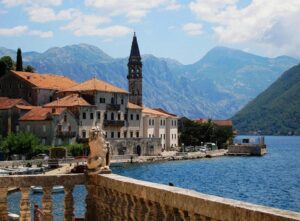
As reported by the Serbian Economist, the Government of Montenegro at a meeting of the Council of National Security approved a package of measures to tighten migration policy, including a proposal to fix in the Law on Foreigners the minimum value of real estate € 200 thousand as a basis for granting temporary residence. This is stated in the official message of the Cabinet of Ministers.
Among other decisions of the Council is the instruction to the Ministry of Foreign Affairs to prepare amendments to the decree on visa regime, which will reduce the period of visa-free stay for citizens of countries not aligned with the EU visa policy from 90 to 30 days. The Council also ordered that data on dormant and inactive foreign-owned companies be handed over to the police for verification and possible revocation of previously issued residence permits.
The government notes that the “company for the sake of a residence permit” ground is planned to be replaced by the requirement of full employment with a registered employer or an established company. At the same time, local media specify that the Parliament has introduced amendments, according to which the extension of residence permit for the founder of the company will be possible if there are at least three full-time employees, of which at least one Montenegrin citizen, and the extension of residence permit for real estate will depend on its value and size. These norms are to be detailed in bylaws.
Podgorica emphasizes that the measures are aimed at aligning the rules with EU approaches and strengthening control over migration flows. The final changes will require the adoption of amendments to the law and bylaws.
https://t.me/relocationrs/1698
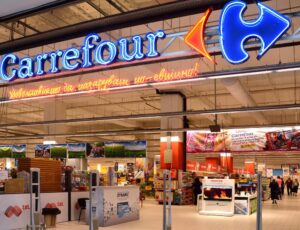
According to Serbian Economist, the Serbian Ministry of Internal and Foreign Trade reported that on November 3, Minister Jagoda Lazarevic met with representatives of Carrefour, who confirmed their interest in entering the Serbian market. According to the ministry, the retail chain is considering direct entry without intermediaries, intends to make Serbia a regional hub and attract local suppliers; negotiations will continue and Carrefour’s top management will come to Serbia by the end of this year.
Serbian business publications, referring to the minister’s statement, specify that the working model is being discussed in several formats, including the search for local franchise partners, while the basic scenario is the direct presence of the chain. The ministry positions the possible arrival of a new player as a way to strengthen competition and offer a wider range of products at competitive prices.
Tanjug Agency notes that Carrefour’s interest in Serbia fits into the Balkan expansion of the chain; previously, specialized resources reported about the exclusive rights of the Greek structure to develop the brand in the region, but the current statements of Belgrade emphasize the direct entry into the market.
The company has not officially announced specific launch dates and locations.
Earlier, Serbian Economist reported about the chain’s negotiations about entering Serbia, but without final decisions. The final terms and format of the presence will depend on the results of the management visit, availability of suitable retail space and agreement of terms with the regulator and potential local partners.
https://t.me/relocationrs/1691
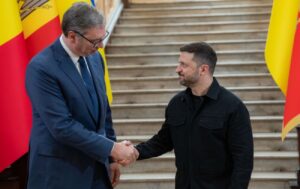
According to Serbian Economist, Ukrainian President Volodymyr Zelensky held a telephone conversation with Serbian President Aleksandar Vucic, during which the parties discussed European integration in detail and agreed to stay in touch. Zelensky reported on the conversation on his Telegram channel. The leaders also touched on coordination on regional security and the immediate international agenda.
We remind you that the day before, the European Commission published its annual reports on EU enlargement. The document on Serbia notes both the advanced elements of reforms and sensitive issues of foreign policy alignment with the EU. Vučić publicly reiterated his position that membership should be assessed on the basis of merit criteria rather than political alignment, against the backdrop of discussions on sanctions policy and dialogue on Kosovo.
At the same time, Kyiv is seeking to accelerate its own negotiation track with the EU. On the day the enlargement package was published, Zelensky called for the process to be brought to the opening of all clusters and for accession to be targeted by 2030, recognizing the need for further anti-corruption and institutional reforms.
In the context of the European Commission’s report, Belgrade is set to engage in dialogue with Brussels on aligning its foreign policy and economic agreements, while Kyiv is focusing on implementing recommendations for the next stage of negotiations. The positions of the leaders following the conversation indicate a willingness to maintain working contacts and exchange experiences in sectors related to the European agenda.
The previous confirmed call between Zelensky and Vučić took place on May 22, 2025.
https://t.me/relocationrs/1685
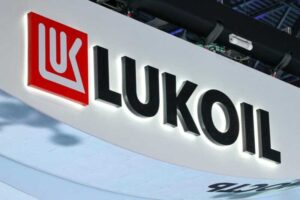
According to Serbian Economist, Russian oil and gas company Lukoil has announced that it has reached an agreement with Gunvor Group to sell all of its foreign assets, including its Serbian subsidiary Lukoil International GmbH (Austria) and its shares in Serbia.
Lukoil’s official statement indicates that Gunvor’s offer has been accepted and that the company undertakes not to negotiate with other potential buyers. The completion of the deal depends on obtaining permission from the US Office of Foreign Assets Control (OFAC) due to the sanctions imposed on Lukoil.
The sale is related to “restrictive measures” imposed by certain countries on Lukoil and its foreign subsidiaries. The deal involves the transfer of networks, assets, and business to the Serbian company Lukoil Serbia.
According to the company’s official data, at the end of 2025, there were 112 Lukoil Serbia gas stations operating in Serbia. Lukoil was second in terms of the number of stations on the Serbian market.
The Serbian retail fuel market is estimated at approximately €3.5 billion in revenue for 2024.
Gunvor Group Ltd is an international energy trader registered in Cyprus with its headquarters in Geneva. In 2024, the company’s revenue amounted to approximately $136 billion. Gunvor specializes in trading crude oil, petroleum products, and LNG, and also has assets in infrastructure (terminals, storage facilities) around the world.
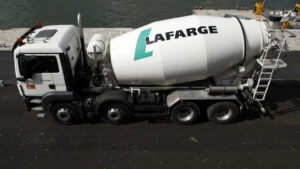
According to Serbian Economist, the Serbian government will allocate €10.6 million in subsidies to Lafarge Beočin, part of the Holcim group, for the construction of a new cement production and distribution plant in Obrenovac, according to the Serbian Ministry of Economy.
According to an agreement between Economy Minister Andrijana Mesarovic and Lafarge Director Dimitrij Knegić, the company will invest €112.25 million in the project and create 51 permanent jobs by the end of 2026.
Lafarge has committed to paying new employees a salary at least 20% above the minimum wage and to maintaining a total workforce of at least 320 people for five years after the project’s completion.
The subsidies will be paid in three stages — in 2026, 2027, and 2028.
Lafarge Beočin, founded in 1839, is one of the largest cement producers in Serbia and is part of the international Holcim group. The plant in Beočin is the oldest cement plant in the Balkans, with a production capacity of over 2 million tons of cement per year.
According to data from the Statistical Office of Serbia, the country’s annual cement production is around 2.5-2.8 million tons, of which more than 70% is accounted for by Holcim / Lafarge.